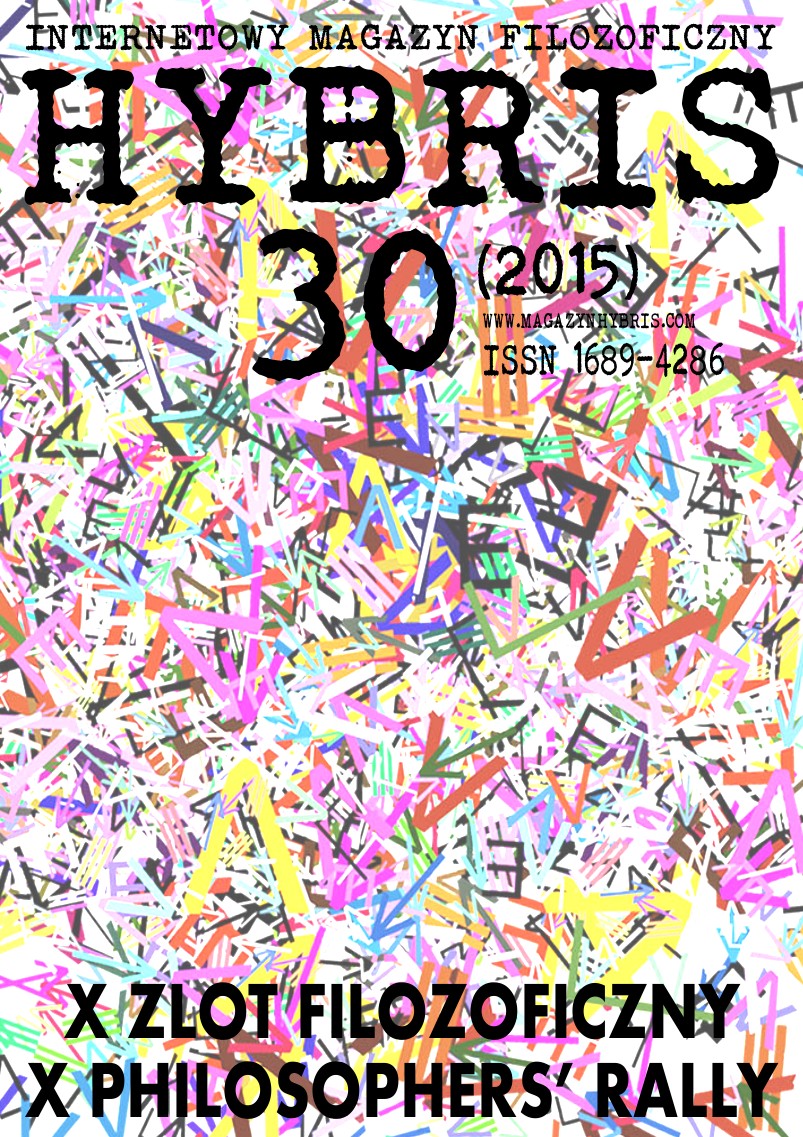Block universe in the context of the new spacetime substantivalism
DOI:
https://doi.org/10.18778/1689-4286.30.11Keywords:
radical Block Universe, new spacetime substantivalism, hole argument, time, diffeomorphismsAbstract
The goal of the paper is to present the problem of time, which emerges in the context of the discussion about the ontological status of spacetime. The problem is a consequence of the progress of the participants of the discussion due to the application of the hole argument to the dispute. I present the shortened history of the hole argument, characterize the participants of the mentioned dispute, their development, I give a formulation of the timeless ontology and the attempts to negate it by the new spacetime substantivalists. I present and discuss a thesis suggesting that those attempts are futile.
References
Butterfield, J., 1989, “The Hole Truth”, The British Journal for the Philosophy of Science 40, s. 1–28.
View in Google Scholar
DOI: https://doi.org/10.1093/bjps/40.1.1
Earman, J., Norton, J. D., 1987, “What Price Spacetime Substantivalism,” British Journal for the Philosophy of Science 38, s. 515–525.
View in Google Scholar
DOI: https://doi.org/10.1093/bjps/38.4.515
Earman, J., 1989, World Enough and Space-Time: Absolute Versus Relational Theories of Space and Time, MIT Press Classics, MIT Press, Cambridge, MA; London.
View in Google Scholar
Earman, J., 2003, Tracking down gauge: an ode to the constrained Hamiltonian formalism, [w:] K. Brading, E. Castellani (eds.), Symmetries in Physics. Philosophical reflections, Cambridge University Press.
View in Google Scholar
DOI: https://doi.org/10.1017/CBO9780511535369.009
Einstein, A., 1914, “Die formale Grundlage der allgemeinen Relativitaetstheorie”, Preussische Akademie der Wissenschaften, Sitzungberichte, s. 1030–1085.
View in Google Scholar
Gołosz, J., 2001, Spór o naturę czasu i przestrzeni, Wyd. Uniwersytetu Jagiellońskiego, Kraków.
View in Google Scholar
Hilbert, D., 1917, “Die Grundlagen der Physik (Zweite Mitteilung.)”, Nachr. Koenigl. Gesellsch. Wiss. Goettingen, Math.-Phys. Kl., s. 53–76.
View in Google Scholar
Hoefer, C., Cartwright, N., 1993, “Substantivalism and the Hole Argument,” [w:] J. Earman et al. (eds), Philosophical Problems of the Internal and External Worlds: Essays on the Philosophy of Adolf Gruenbaum,: University of Pittsburgh Press/Konstanz: Universitaetsverlag Konstanz, Pittsburgh/Konstanz, s. 23–43.
View in Google Scholar
DOI: https://doi.org/10.2307/j.ctt5vkgg6.5
Maudlin, T., 2002, “Thoroughly Muddled McTaggart: Or, How to Abuse Gauge Freedom to Create Metaphysical Monstrosities”, Philosophers’ Imprint 2 (4), , s. 1–23.
View in Google Scholar
Rickles, D., 2005, What price determinism? A Whole Other Story!, http://philsci-archive.pitt.edu/2286/1/WPD(Rickles).pdf [dostęp: 28.10.2014]
View in Google Scholar
Rovelli, C., 2004, Quantum Gravity, Cambridge University Press.
View in Google Scholar
DOI: https://doi.org/10.1017/CBO9780511755804
Rynasiewicz, R., 1994, “The Lessons of the Hole Argument”, The British Journal for the Philosophy of Science 45, s. 407–436.
View in Google Scholar
DOI: https://doi.org/10.1093/bjps/45.2.407
Rynasiewicz, R., 1996, “Absolute Versus Relational Space-Time: An Outmoded Debate?”, The Journal of Philosophy 93, s. 279–306.
View in Google Scholar
DOI: https://doi.org/10.2307/2941076
Teller, P., 1998, “Quantum Mechanics and Haecceities”, [w:] E. Castellani (ed.), Interpreting Bodies: Classical and Quantum Objects in Modern Physics, Princeton University Press, s. 114–141.
View in Google Scholar
DOI: https://doi.org/10.1515/9780691222042-010
Wald, R. M., 1984, General Relativity, Univ. of Chicago Press.
View in Google Scholar
DOI: https://doi.org/10.7208/chicago/9780226870373.001.0001
Downloads
Published
How to Cite
Issue
Section
License

This work is licensed under a Creative Commons Attribution-NonCommercial-NoDerivatives 4.0 International License.






